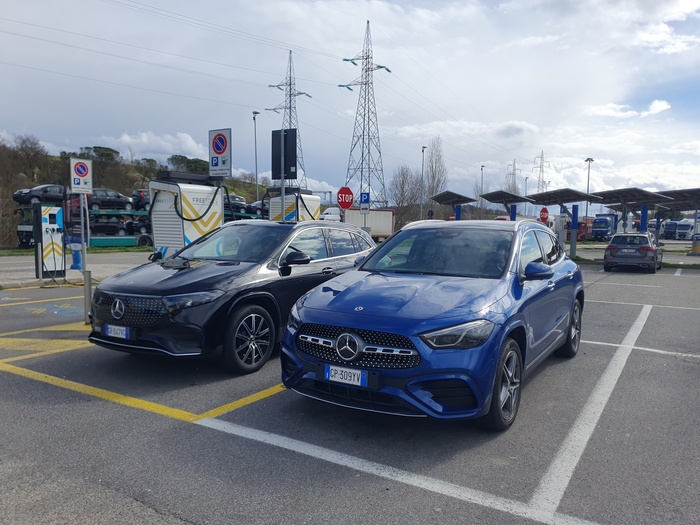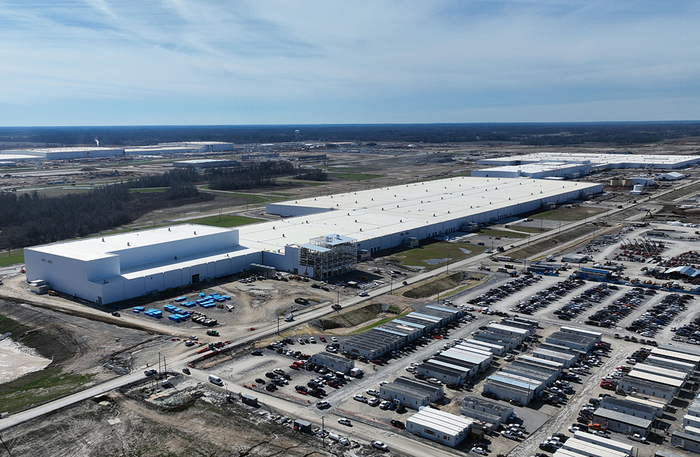comment
Even in the German car industry hardly a responsible person had taken notice of it, then, shortly after the turn of the millennium: An Audi manager with Chinese descent quit his job in Ingolstadt and went back to his homeland. He followed the call of his state. Wan Gang was the name of this engineer, and right after his return he set up a national research program under the umbrella of the "Program 863" with which the Middle Kingdom wanted to make the transition from the combustion engine to the electric motor. The man launched a revolution: Two million new electric cars are to be approved in China in 2020, 750,000 charging stations were already last year.
Almost twenty years after this epoch-making event, the German government met with heads of the German auto industry and trade unions and state representatives on Monday evening to initiate something similar to what the Chinese were then: an era of change. But even from a distance it can be seen how far behind the Germans lag behind: mental, technological, logistical. A revolution has been overslept, and this in a country whose economic well-being depends on the automobile - including 800,000 jobs.
Patrick Pleul / DPA
Electric car at a charging station in Cottbus (archive image)
Suddenly, everything is supposed to go fast now: Purchase premiums of 6,000 euros, especially for smaller vehicles from the middle class and subclass, should get customers on the German market, which is so important for the domestic industry. One million charging stations should stand, until 2030, mind you. Suddenly, the government notes that a whole range of simple administrative regulations that have hindered the development of charging stations so far can be changed. Including such a banal that has made it difficult for supermarkets to build electricity dispensers in their parking lots, if they remain closed at night.
This is just one of the examples that show how governments and corporations have failed to make the biggest transformation in the auto industry since the car was invented. The diesel scandal was a first wake-up call, at least it could have been him. He has shown that the German manufacturers had bet on the wrong drive technology and had sold it to the rulers for too long as the right path. For many years now, there has been a "National Platform for Electromobility" and the Chancellor's promise to bring one million electric cars to Germany's roads by 2020. But those responsible acted halfheartedly, as a glance at German supermarket parking lots could have revealed.
Scouring is the wrong choice
Until a few months ago, even the Federal Transport Minister Andreas Scheuer had not yet understood: He spoke of technology-open promotion for the drives of the future. As if it had not yet been decided that electromobility belongs to the future. Ultimately, it took the climate protests, so movement in the matter with the electric cars comes. At last.
It is not exactly optimistic when the result of the electromobility summit is now: A control center in the Federal Ministry of Transport of Andreas Scheuer should "plan and coordinate" a run-up. Already in broadband expansion and mobile, the CSU man has proved that he can do one thing above all else: produce fancy promotional films for social media.
When it came to the climate protection program of the government, even the Chancellor was so annoyed by the insufficient proposals from the Ministry of Transport that she had to exhort scrape before a whole college in the Chancellery. And even today, Scheuer refuses to have the climate protection instruments submitted by independent experts examined for their effectiveness.
More at SPIEGEL +
No really good qualifications, then, are to give the Minister of Transport the most important economic policy challenge of the republic: the transformation of the automobile industry from a combustion engine to an electric motor. It could also have been taken over by the Federal Ministry of Economics: here lies not only the industrial policy steering competence of the Federal Government, but also the responsibility for the energy industry, ie the industry that is extremely important for the change.
Because the construction of charging points in the country is next to an attractive range of electric cars, the probably crucial set screw for the Germans to switch to the Stromer. The agreement on Monday evening is a cause for concern that the government will fail even in this important infrastructure task. Not only because it is in the hands of a ministry with a miserable current account. The chosen approach is also questionable: it is the government namely noticeable to mass. The higher numbers she can announce, the better she can convince voters that things are going with electric mobility.
Mass alone does not bring it
The task actually requires a differentiated approach. In the future, not every tenant will simply hang his car in the evening. Homeowners will do this, which is why the expansion of the charging infrastructure, contrary to widespread political opinion, will be easier, especially in the countryside, where people mostly live in homes and park and load right outside the door. In cities, people have to load while shopping and then when the car is parked at work. Instead of stupid slow-loading pillars in harsh masses, smart quick-charging stations are needed in the right places.
photo gallery
20 pictures
Photo gallery: The Electric News 2020Of course, there are also fast charging stations on the highways, where a car must have taken enough electricity in ten minutes to drive one hundred or two hundred more kilometers. At the summit, a number of important decisions have been made. Some are astonished: Why should the car companies build charging stations? It's as if the petrol stations were operated by BMW or Mercedes today.
Therefore, on Monday, the major energy suppliers would have listened to the table. Not only do you have to strengthen the nets, you also have to build the charging stations. You have to weave the mobility turnaround with the energy transition.
This requires much more solar power, including in the cities, and intelligent control systems that ensure that the entire electric car fleet of the future will not be charged just when people come home from work. In this case, it would require a power grid that would take such huge capacity that the structure would be too expensive.
For Germany, the longer the country has overslept the electric revolution, the smarter it must be in catching up. The car summit was an important turning point. Judging by the task but he was only a short milestone on a great, fateful journey.









